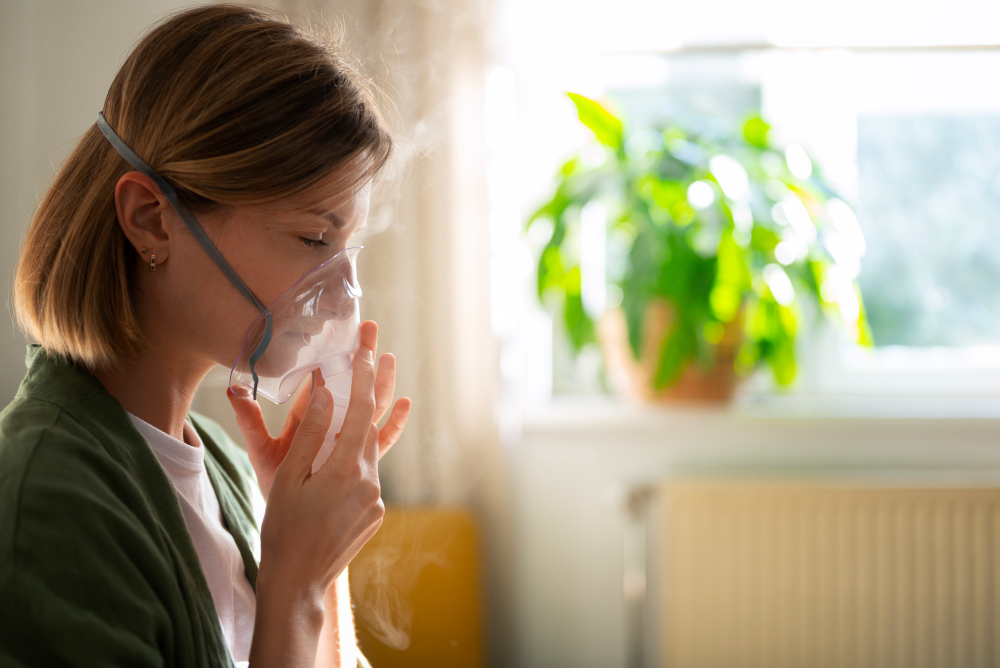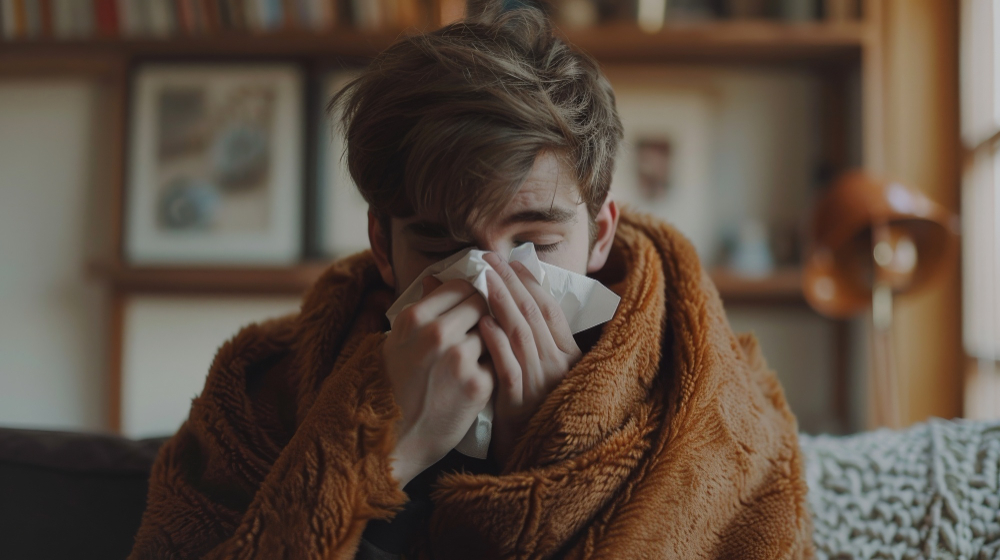Table of Contents
Winter is a time when many people experience more frequent and severe sinus issues. From congestion and headaches to facial pressure and general discomfort, sinus problems can be difficult to manage. The colder months exacerbate these symptoms for several reasons, including environmental factors and increased exposure to seasonal illnesses. In this blog post, we’ll explore why sinus issues tend to worsen in winter and offer some tips on managing the discomfort effectively.
How Cold Air Affects Sinuses
One of the main reasons sinus issues are worse in the winter is the cold air itself. Cold weather dries out the nasal passages, which can cause irritation and inflammation. When your nasal passages become too dry, it makes it harder for the sinuses to drain properly, leading to congestion.
Additionally, cold temperatures cause the blood vessels in the nasal lining to constrict, reducing the amount of blood flow to this area. This decreases the effectiveness of your body’s natural defense mechanisms, making it harder for the sinuses to fight off infections or clear out mucus.
Indoor Heating and Dry Air
Indoor heating is a lifesaver in the winter months, but it comes with a downside: dry air. Most central heating systems dry out the air in homes and offices, and this lack of moisture can make sinus problems worse. When the air is dry, the mucus in your nasal passages thickens, making it more difficult for the sinuses to clear out properly. This can lead to further congestion and discomfort.
Maintaining proper humidity levels indoors is crucial during the winter. A good rule of thumb is to keep indoor humidity between 30% and 50%. Using a humidifier can help maintain moisture in the air, reducing the risk of dry sinuses and irritation.
Increase in Cold and Flu Viruses
Another factor that makes sinus issues worse during the winter is the prevalence of cold and flu viruses. These viruses thrive in colder weather and are more easily spread when people spend more time indoors, close to one another.
When you catch a cold or flu, your sinuses can become inflamed, leading to congestion and infection. Viral sinusitis is a common winter problem, as viruses inflame the sinus tissues, causing discomfort. In some cases, this can lead to bacterial sinus infections, which can be even more severe.
Seasonal Allergies and Sinus Issues
It’s not just cold and flu viruses that contribute to sinus problems in the winter—seasonal allergies can also play a role. Indoor allergens like dust mites, mold, and pet dander become more prevalent in the winter as people spend more time indoors.
When you have an allergic reaction, your body releases histamines, which cause your nasal passages to swell and produce excess mucus. This can trigger sinus congestion and other uncomfortable symptoms.
Weakened Immune System
Your immune system is another critical factor in sinus health during the winter. The lack of sunlight and reduced exposure to natural sources of vitamin D can weaken your immune system during the colder months, making it harder for your body to fight off infections, including sinus infections.
With a weakened immune system, you’re more susceptible to viral and bacterial infections that can affect your sinuses. This makes it even more important to take steps to protect and strengthen your immune system during the winter.

Ways to Manage Sinus Issues in Winter
While winter can be tough on your sinuses, there are steps you can take to reduce discomfort:
- Use a humidifier: Adding moisture to the air can help prevent your nasal passages from drying out.
- Stay hydrated: Drinking plenty of water keeps your mucous membranes moist, helping your sinuses function properly.
- Nasal saline sprays: Regular use of saline sprays can help flush out mucus and clear your sinuses.
- Limit exposure to cold air: When outdoors, cover your nose and mouth with a scarf to protect your nasal passages from the cold air.
When to Seek Medical Help
If you find that your sinus issues persist or become severe despite taking preventive measures, it may be time to seek medical help. Chronic or severe sinusitis could require treatments such as prescription medications, nasal sprays, or in some cases, sinus surgery.
For professional advice and treatment, consult Niazi ENT Clinic. Our clinic specializes in diagnosing and treating sinus issues, including chronic sinusitis, nasal obstructions, and more. We offer a range of services, including endoscopic surgeries to restore proper sinus function.
Contact Us
If you’re struggling with persistent sinus problems this winter, don’t wait for them to worsen. Niazi ENT Clinic is here to help! Get in touch with us today for a consultation.
- Phone: +92-305-4999421 / +92-314-1930268
- Email: saleem.niazi91@gmail.com
At Niazi ENT Clinic, we provide personalized treatment options tailored to your needs, ensuring you get the relief you deserve. Call us now to book an appointment and start breathing easier this winter! Read Can TMJ Casuse a Sore Throat?
